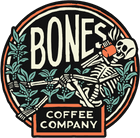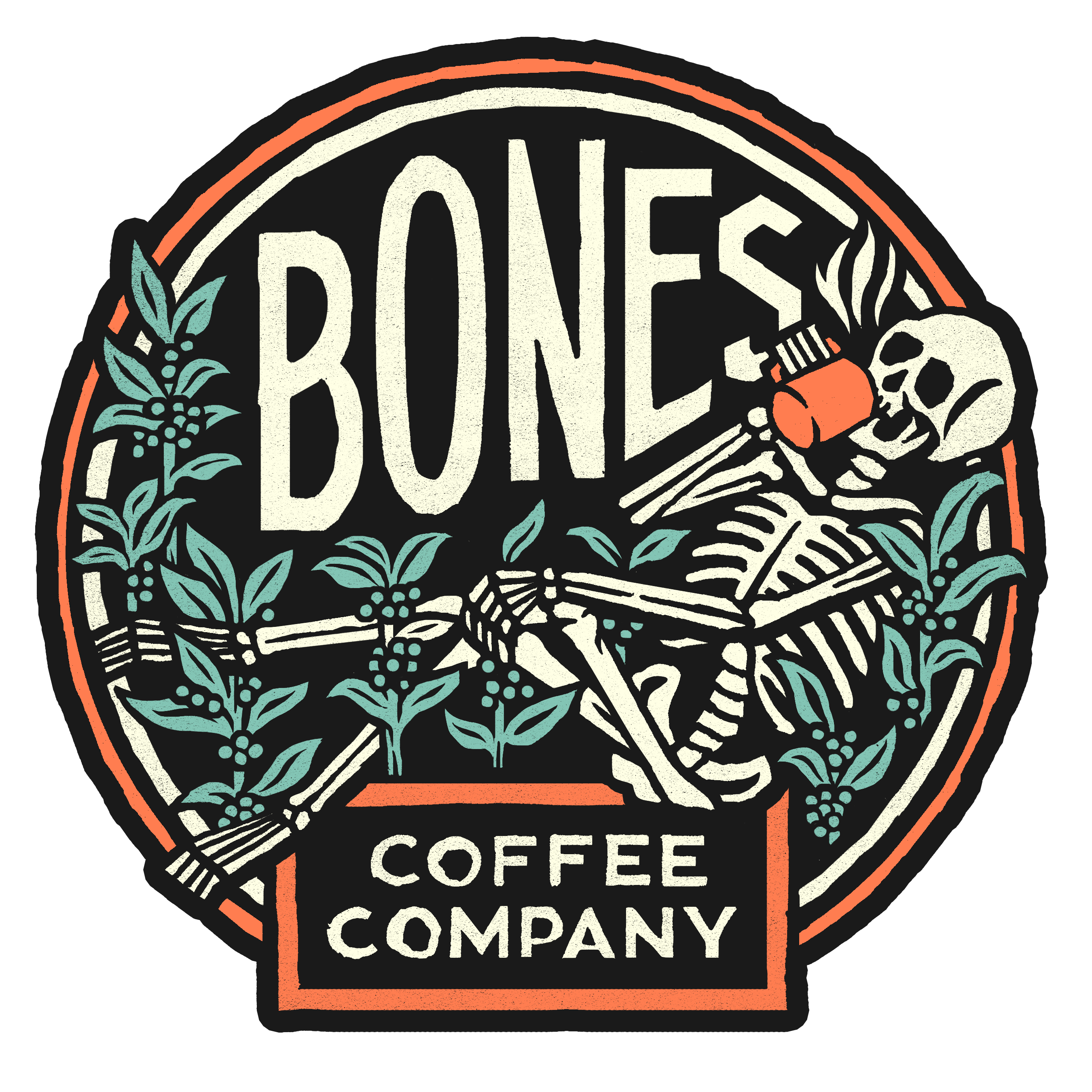In today’s evolving work landscape, hybrid models have introduced trends like "coffee badging"—a practice offering both convenience and controversy.
Coffee badging allows employees to meet office attendance requirements while maintaining the flexibility of remote work. This increasingly popular phenomenon reflects a shift in employee priorities as workers balance efficiency, cost savings, and workplace dynamics.
As more organizations navigate these behaviors, understanding coffee badging and its implications becomes crucial to fostering a balance between employee needs and organizational goals.
Coffee Badging Defined
So, what is coffee badging, exactly? Coffee badging refers to a growing workplace trend where employees make a brief appearance at the office, often swiping their badges and taking the chance to grab a coffee before heading back to work remotely.
This practice has become popular among hybrid employees who aim to fulfill on-site attendance requirements while still prioritizing remote flexibility. For some, it’s a clever way to navigate their job responsibilities while maintaining a sense of autonomy.
However, it highlights a broader conversation about hybrid work and its impact on work-life balance.
As coffee badgers emerge as symbols of this workplace shift, it raises questions about how organizations and individuals adapt to evolving return-to-office dynamics.
Productivity Tip: For the most effective caffeine boost, it's recommended to enjoy your first coffee about three hours after waking. This timing aligns with the natural dip in cortisol levels and when energy tends to wane, typically between 9:30 a.m. and 11:30 a.m. |
Coffee Badging in 2024: Who’s Doing It and Why?
The popularity of coffee badging remains strong in 2024, with new data from the Owl Labs report shedding light on how hybrid workers and workplace culture fuel this trend.
For many, it’s the perfect opportunity to grab a coffee while maintaining visibility in the office. This practice reflects a mix of practicality and flexibility needs, contributing significantly to job satisfaction among employees navigating hybrid models.
As companies adapt, the workforce debates how this habit impacts productivity and morale, with coffee badgers becoming emblematic of the modern workplace culture.
How Widespread Is Coffee Badging?
According to the 2024 data by Owl Labs, coffee badging is embraced by 44% of employees, making it a prominent feature of hybrid work routines.
Interestingly, an additional 11% of workers expressed interest in trying coffee badging, indicating considerable room for this behavior to grow.
However, 45% of respondents reported attending the office willingly and staying for a full day, showing a divide between those seeking flexibility and those inclined toward traditional office structures.
Managers vs. Employees: A Surprising Divide
Managers seem more likely to partake as coffee badgers compared to individual contributors. Nearly half of managers (47%) coffee badged, compared to just 34% of non-managerial staff.
This difference sheds light on how leadership roles often allow for greater autonomy, enabling hybrid workers to balance their time between the company office and remote locations.
For individual contributors, however, stricter oversight and adherence to in-office days or less flexible hours may discourage this trend.
To address these disparities, organizations may need to rethink policies to reduce coffee badging while promoting fairness across all roles.
Consequences of Getting Caught
Organizations are increasingly aware of coffee badging, and how it intertwines with company culture and evolving workplace norms. For many hybrid employees, this practice reflects a balancing act between flexibility and their employer's return to office expectations.
Interestingly, 59% of employees reported no negative impact when caught, as their coworkers or employers showed little concern.
However, 11% faced stricter policies requiring full-day office attendance, which can disrupt teams and productivity.
On the other hand, 30% admitted they had never been caught, highlighting how casually this behavior is perceived in certain office settings.
Coffee Guide: Single-origin coffee is an excellent choice for black coffee drinkers, as it highlights the delicate and unique flavors of its region of origin. |
What Drives Employees to Coffee Badge?
Coffee badging emerges as a response to the growing disconnect between traditional work policies and the realities of modern workforce needs.
For many employees, this behavior is less about quiet quitting and more about reclaiming control over how and where they perform best.
The Owl Lab data suggests that coffee badged employees persist in this practice because it strikes a balance between meeting employers’ expectations and preserving work-life balance.
Additionally, it allows workers to align themselves with management directives while enjoying the perks of working remotely. This trend is especially appealing to those looking to reduce commuting expenses, optimize time spent in the office space, and reclaim personal time.
Understanding this phenomenon sheds light on key motivations behind its popularity:
Reclaiming Mornings for Efficiency
Employees no longer want to spend hours commuting when those mornings could be better spent on focused work, personal reflection, or preparing for a productive workday without disruptions.
This shift in priorities often exposes outdated work policies that fail to align with modern needs. For many, coffee badging offers a solution by trimming down unnecessary time spent in the office while maintaining visibility with their employer.
By embracing such flexibility, companies can enhance employee morale and adapt to a workforce that values efficiency over presenteeism.
Financial Trade-offs in a Hybrid World
Rising costs in transportation, parking, meals, and even wardrobe maintenance hit hybrid workers harder.
For many, the cost-to-benefit ratio for being onsite doesn’t align with the convenience and financial savings of working remotely.
These concerns highlight why employees often question rigid RTO policies that prioritize physical presence in the office over productivity. Addressing these disparities can help companies create a more balanced and supportive work environment.
Maximizing Productivity Through Autonomy
People work differently, and remote environments often provide hybrid workers with the freedom to shape their own productive routines.
For many, coffee badging offers a way to bypass the constraints of traditional office settings—such as frequent interruptions—while still staying aligned with companies’ expectations.
This approach highlights how evolving work policies can empower employees to meet deadlines on their own terms, boosting efficiency and satisfaction.
Performance Hack: To maximize coffee’s performance-enhancing benefits, consider scheduling 2 to 3 coffee breaks throughout your workday rather than sipping continuously. This approach helps ensure a steady energy boost every few hours, aligning with the time it takes for caffeine to take effect. |
A Strategic Retreat From Stressful Environments
For employees dealing with microaggressions, unwelcoming office politics, or overly watchful managers, coffee badging becomes more than just an escape—it’s a form of self-preservation.
By choosing to coffee badge, they can subtly navigate challenging environments without escalating tensions or resorting to full quiet quitting.
This strategy enables them to maintain a presence within the company while staying connected to their teams, striking a balance between personal well-being and professional expectations.
Resistance to One-Size-Fits-All Mandates
Employees are pushing back against rigid RTO policies that seem detached from their actual job responsibilities.
Coffee badging reflects their quiet rebellion against systems that disregard performance in favor of mere physical presence.
Transforming Office Culture to Tackle Coffee Badging
Instead of penalizing employees for coffee badging, leaders should focus on rethinking their organization's approach to remote work and hybrid models.
By addressing the root causes of this behavior, such as a lack of engagement or rigid policies, businesses can foster a renewed sense of community and connection.
Implementing strategies that reduce coffee badging while supporting flexibility can help create a more balanced and productive work culture.
Here are practical solutions:
Flexibility Should Be the Rule, Not the Exception
Allow employees greater flexibility in determining when and how they return to the office.
For instance, replacing fixed schedules with task-oriented or need-based visits could reduce the compulsion to coffee badge, creating a more intentional and productive approach to in-office attendance.
Reduce Financial Barriers to Onsite Work
Many workers coffee badge to avoid the financial strain associated with commuting and regular onsite attendance.
To address this, businesses can introduce supportive measures such as fuel allowances, discounted meal plans, or covered daycare costs.
These initiatives can help alleviate the burden of in-office requirements while fostering a more equitable and supportive work environment.
Create an Office That Inspires, Not Requires
Reimagine on-site office spaces with features like comfortable breakout zones, ergonomic setups, or wellness areas.
When employees feel their time in the office is rewarding and inviting, they are less likely to engage in behaviors reminiscent of quiet quitting, such as badging in and leaving.
For businesses to thrive, creating a workspace that aligns with their company’s values and employee needs is key to fostering engagement and productivity.
Host Meaningful In-Person Engagements
Replace routine office attendance with purpose-driven events like team workshops, networking lunches, or innovation hackathons.
Employees are more likely to invest time onsite if they see communal and professional benefits.
Did You Know? Arabica and Robusta are the coffee species that comprise 99% of global consumption. |
Encourage Open Dialogues About Work Preferences
Introduce tools like surveys or anonymous forums to uncover insights into what coffee badging is and why employees actively disengage from the office.
For hybrid employees, such tools allow management to gauge how RTO policies impact their satisfaction and productivity.
Listening to feedback fosters mutual respect and builds trust within teams, enabling companies to address these trends holistically and support employees' preferences more effectively.
Lead by Example
When senior leaders visibly embrace flexible work principles—balancing their own in-office and remote days—employees feel less pressure to conform to Return to Office mandates superficially. Authentic leadership drives better behavior.
Shift to Output-Oriented Performance Reviews
Redesign productivity metrics to emphasize results rather than physical presence. Shifting the focus away from attendance and in-office days could reduce the need for employees to "game the system."
By adopting innovations like the four-day workweek, companies can align their practices with evolving workplace expectations.
This approach not only boosts morale but also creates a more productive environment where employees feel trusted. When integrated into a strong company culture, such changes promote a healthier work dynamic that values output over optics.
Repair Negative Work Culture
If coffee badging is rooted in toxic office culture, it’s crucial to resolve these deeper issues. Invest in leadership development, diversity, equity, and inclusion (DEI) initiatives, and anonymous reporting structures to build a workplace employees genuinely want to engage with.
Rethink Hybrid Work and Energize Your Day with Bones Coffee
Coffee badging reflects the evolving hybrid work culture, balancing employees’ preferences for flexibility with workplace expectations. While it offers convenience, the practice underscores challenges like inequitable workplace dynamics and decreased office connectedness. Organizations can address these issues with strategies that promote flexibility, collaboration, and inclusive policies, fostering a thriving hybrid work environment.
Fuel your productivity and make your hybrid workday better with Bones Coffee. With over 30 unique flavors, rich aromas, and smooth small-batch roasted options, Bones Coffee delivers the perfect cup wherever you are.
Explore a variety of formats, including cans, Bones Cups, and 12 oz bags. Orders over $75 ship free in the US, so don't wait—visit us now at Bones Coffee. For inquiries, contact us at Support@BonesCoffee.com.






